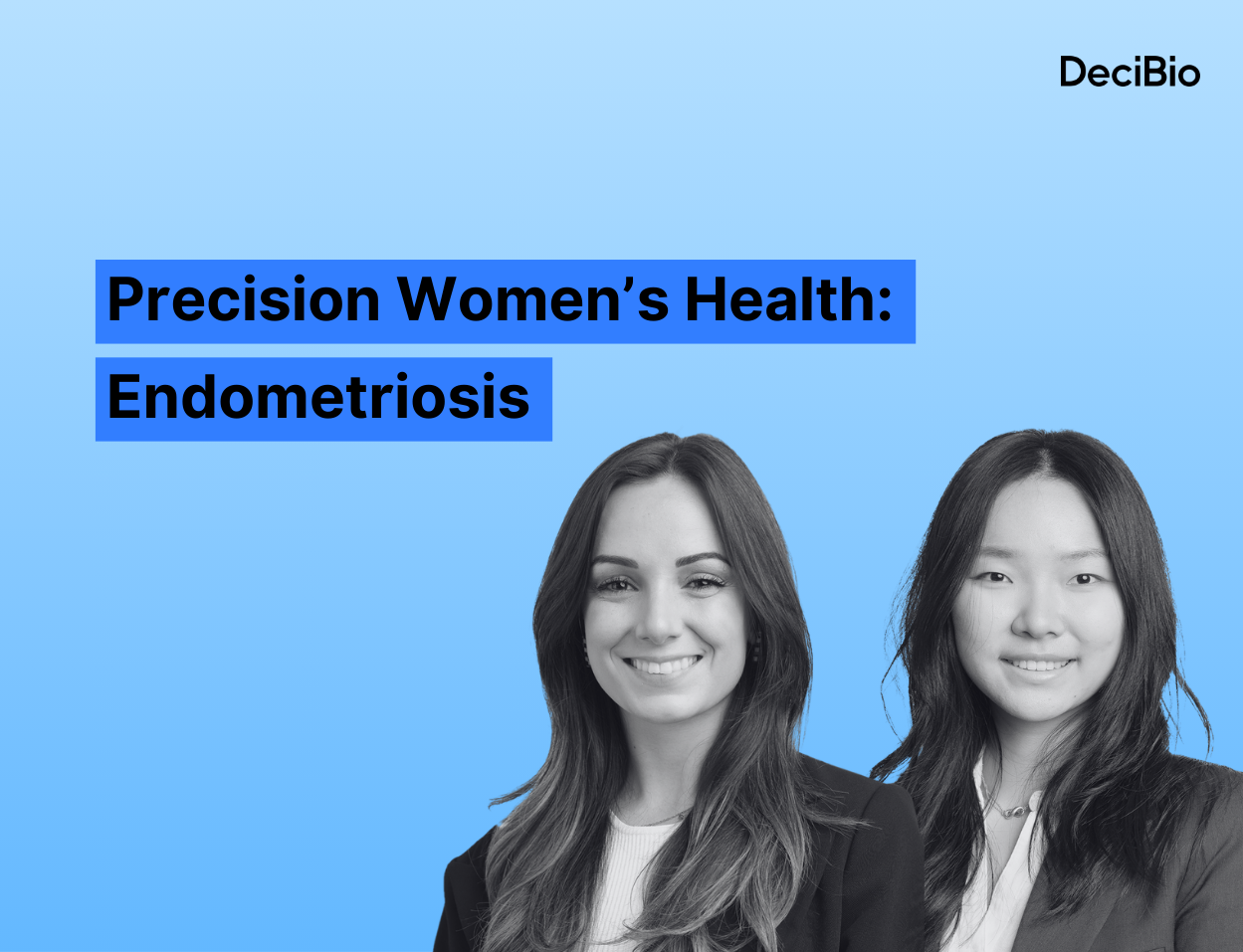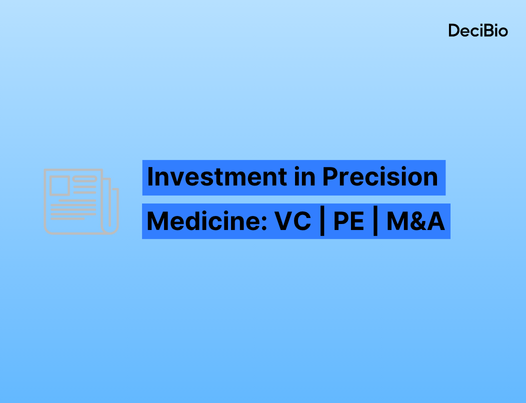Highlights & Summary
We wrapped up 2024 with updates and innovation in digital health! Read about it here:
Disease Management / Digital Therapeutics
Cleerly raised $106 million to expand its AI-driven CT imaging technology for diagnosing coronary artery disease. Withings received FDA clearance for its BPM Pro 2, a cellular blood pressure monitor that enhances remote patient monitoring and integrates with clinical workflows. Wisp and Nourish collaborate to make nutrition counseling more accessible for women on GLP-1s.
Informatics / Healthcare IT Solutions
Carta Healthcare acquired Realyze Intelligence to boost its platform for faster patient matching in oncology research, aiming to improve outcomes and reduce costs. athenahealth introduced AI-driven automation tools to streamline revenue cycle management and cut administrative tasks for healthcare practices.
Women’s Health / Femtech
GE HealthCare launched the Pristina Via mammography system to improve workflow and patient care, focusing on reducing repetitive tasks and ensuring flexible, patient-centered care. A study found that women who enrolled in a self-pay, AI-enhanced breast cancer screening program had a 21% higher cancer detection rate compared to unenrolled women, with AI acting as a second reviewer.
Disease Management / Digital Therapeutics
1 | Cleerly Raises $106 Million in Funding Led by Insight Partners to Revolutionize Heart Disease Care
2 | Withings BPM Pro 2 is now FDA Cleared and Named CES 2025 Innovation Award Honoree for Digital Health
3 | Wisp and Nourish Partner to Provide Enhanced GLP-1 Nutrition Counseling for Women
Informatics / Healthcare IT Solutions
2 | athenahealth to Cut Revenue Cycle Management Work for Physician Practices by 50%
Women’s Health / Femtech
2 | Women Pay for AI to Boost Mammogram Findings
News Scrape
Disease Management / Digital Therapeutics
1 | Cleerly Raises $106 Million in Funding Led by Insight Partners to Revolutionize Heart Disease Care
Cleerly, a cardiovascular imaging company, raised $106 million in a Series C funding round led by Insight Partners and Battery Ventures, with contributions from existing investors. Cleerly uses AI-driven CT imaging to improve coronary artery disease diagnosis and will use the funds to scale its commercial growth and clinical evidence generation. In 2022, Cleerly raised a total of $248 million, with prior funding rounds including notable investors like T. Rowe Price and Fidelity Management.
2 | Withings BPM Pro 2 is now FDA Cleared and Named CES 2025 Innovation Award Honoree for Digital Health
Withings Health Solutions has announced that its BPM Pro 2, a cellular blood pressure monitor, has received FDA clearance and been named a CES 2025 Innovation Awards Honoree in the Digital Health category. The device enhances remote patient monitoring by providing accurate blood pressure and pulse rate measurements while integrating seamlessly into clinical workflows. It features a Patient Insights tool, which allows for customized patient questionnaires to gather additional health data, reducing clinical workload. BPM Pro 2 also includes a Retake Measure feature for improved measurement reliability and engages patients through personalized health nudges. The device supports connectivity via cellular, Wi-Fi, and Bluetooth, ensuring access to patient data regardless of location.
Informatics / Healthcare IT Solutions
Carta Healthcare has acquired Realyze Intelligence, enhancing its AI-powered platform to accelerate patient matching with clinical trials. Realyze’s product analyzes structured and unstructured EHR data, significantly reducing the time needed to identify suitable patients for research, from hours to seconds. The combined platform aims to improve patient outcomes and reduce costs in oncology and other specialties by automating data analysis. This integration will also help increase trial feasibility and enrollment rates while streamlining data abstraction for clinical registries. The collaboration supports the healthcare industry's effort to tackle rising cancer mortality rates and improve care.
2 | athenahealth to Cut Revenue Cycle Management Work for Physician Practices by 50%
Athenahealth has introduced new automation tools on its cloud-based platform to streamline revenue cycle management for healthcare practices. These innovations, including an AI-powered insurance selection tool and Auto Claim Create feature, aim to reduce administrative burdens, improve claims efficiency, and enhance financial performance. The tools claim to reduce insurance-related claim holds by 36% and speed up claims submissions. Additionally, athenahealth’s authorization management services aim to address prior authorization challenges, reducing patient wait times and administrative workload. These efforts are part of athenahealth’s goal to eliminate half of current administrative tasks within three years.
3 | Wisp and Nourish Partner to Provide Enhanced GLP-1 Nutrition Counseling for Women
Wisp, a virtual provider of sexual and reproductive healthcare, has partnered with Nourish, a food-as-medicine startup, to enhance its weight care program with personalized nutrition counseling services. Through this collaboration, Wisp patients enrolled in the weight care program can access nutrition counseling from registered dietitians, either through insurance or an exclusive discount for cash-pay patients. Nourish’s services include medically tailored meals, progress tracking, and educational support via a mobile app, with evidence of significant health improvements in patients. The goal of the partnership is to provide women with a holistic, integrated approach to weight management, particularly for those using GLP-1 medications.
Women’s Health / Femtech
GE HealthCare has introduced the Pristina Via mammography system, designed to enhance the screening experience for both technologists and patients. The system streamlines workflows with features such as zero-click acquisition, faster image cycles, and vendor-neutral image comparison, all while minimizing radiation doses. Pristina Via builds on the Senographe Pristina platform, focusing on reducing repetitive tasks and supporting patient-centered care. The system also offers a scalable platform, ensuring flexibility for evolving imaging needs. GE HealthCare developed the system in response to challenges faced by technologists, aiming to improve efficiency while maintaining diagnostic accuracy and patient comfort.
2 | Women Pay for AI to Boost Mammogram Findings
A study across 10 healthcare practices found that more than a third of women enrolled in a self-pay, AI-enhanced breast cancer screening program, which led to a 21% higher cancer detection rate compared to unenrolled women. The AI software, which acted as a second reviewer, was complemented by a safeguard review from an expert radiologist. Enrollment in the program was also linked to higher-risk patients, contributing to a 43% higher overall cancer detection rate. Although the recall rate was higher for enrolled women, the positive predictive value was also 15% greater, indicating more cancers were identified per recall. Researchers hope to further quantify the AI program's benefits through randomized controlled trials.

.png)





.png)

.png)

